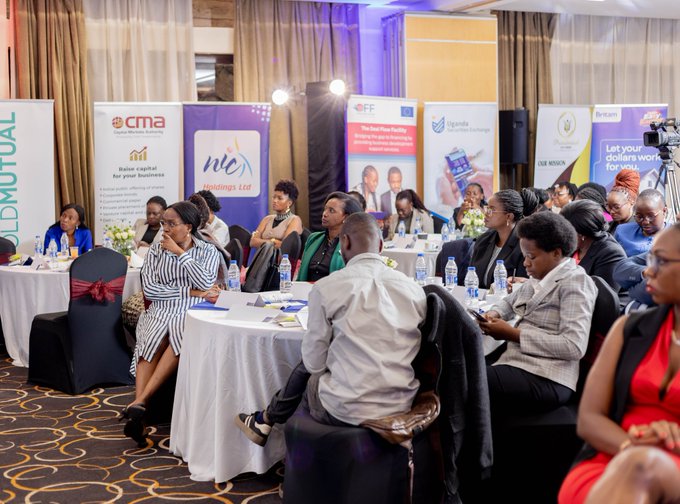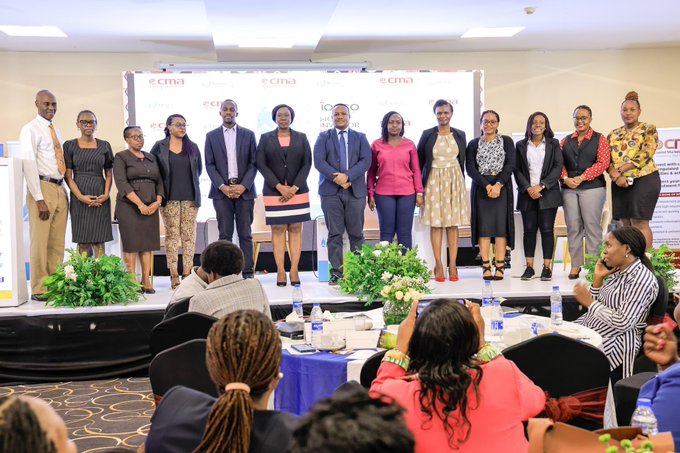Capital Markets Authority (CMA) and Uganda Securities Exchange (USE) on Wednesday, October 23, 2024, hosted the Women in Investment Breakfast at Protea Hotel in Kampala with key discussions on how investment opportunities in the capital markets can be brought closer to the women.
The dynamic event running under the theme, “Breakfast is Tech-Enabled Financial Inclusion: Bringing Sustainable Finance and Investment Opportunities to Everyone”, empowered women entrepreneurs to explore capital markets as a crucial alternative for business financing.
In her keynote speech, CMA Chief Executive Officer Josephine Okui Ossiya said the week-long Women Investors Week 2024 seeks to equip investors with the insights and tools they need to thrive in today’s fast-evolving financial markets.
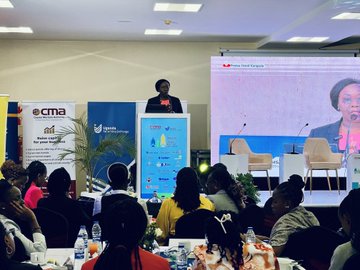
“Today’s theme explores how women can embrace the digital landscape to grow their wealth and secure their financial future,” she explained.
She said technology has been harnessed effectively to enable women entrepreneurs and investors to innovate products, and processes and make the financial ecosystem more inclusive, equitable, and empowering.
“The digital revolution has opened doors that were previously closed to many women, for example, in mobile banking, digital wallets, and online investment platforms.”
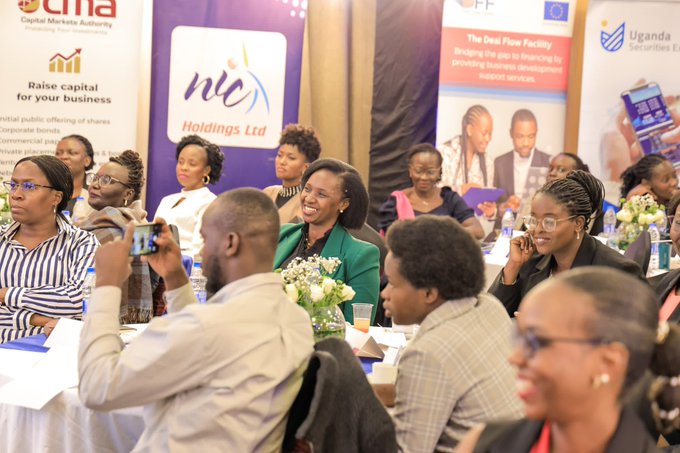
She said for women seeking to raise capital, technology offers unprecedented opportunities, and “therefore, mobile phones have become a crucial tool for financial inclusion.”
Ossiya cited a case in the Katakwi district “where women work more than men”, saying prior, men would take away the money women made from selling their agricultural products but now, the money goes to their phones by mobile money which allows them to save.
Renita Nabisubi, Non-Executive Director at the Uganda Securities Exchange (USE), said financial inclusion is especially important for women because many women in Uganda are still financially excluded due to various barriers.

She cited a study by McKenzie saying that if more women participated in the economy, Uganda could add about $11 billion to its GDP by 2030.
“This huge number shows what we are missing today. Technology can help change this. Digital tools like mobile money, online trading, and mobile banking are breaking down these barriers. Right now, 64% of adults in Uganda use mobile money to access financial services,” she noted.
She added: “At the exchange, we have embraced this change. Any adult with a phone can open a trading account and buy shares using mobile money and USSD codes. We also created the USE EasyPortal app, which lets investors track stock performance, check balances, and manage their portfolios on their own.”
Sarah Bateta Okwi, the Chief Finance Officer at MTN Momo, said women who take loans from financial institutions are better than their male counterparts when it comes to paying back their debts.
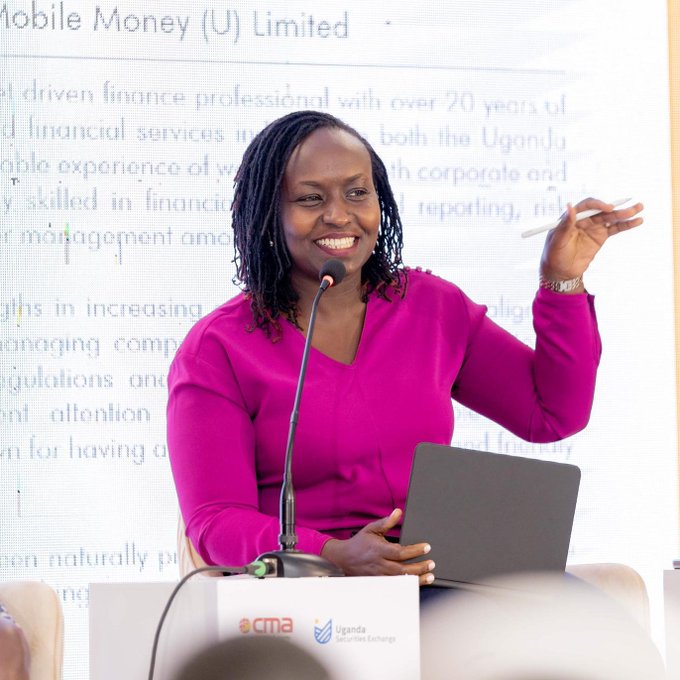
“Women borrowers outperform men when it comes to debt repayment,” she noted, adding that MTN encourages women entrepreneurs and includes everyone in financial growth.
“We created the #MTNAwe program to support women entrepreneurs. This program helps women improve their services and includes training. We are using Mobile Money to analyze women’s involvement in investments and revenue. Out of our 13 million active users, 47% are women-active—active meaning they transact within 30 days.”
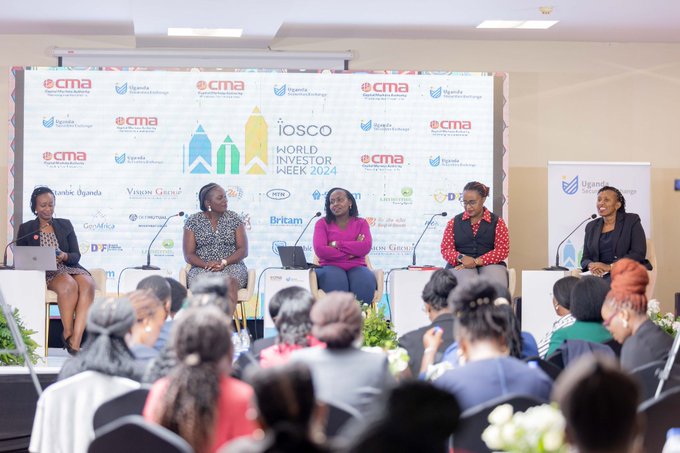
She said for the mobile payment service, which MTN has been rolling out for three years, 44% of the users are women.
“MoMoPay allows people to make payments even at small local stores. In the past, you needed a bank account to access financial services, which many in our communities didn’t have. However, technology and Mobile Money have changed that, bringing financial inclusion closer to everyone.”
Women entrepreneurs speak
Vasta Kamara, the Chief Executive Officer of Harvest Multipurpose Cooperative, said the key to saving money is investing with a long-term plan.
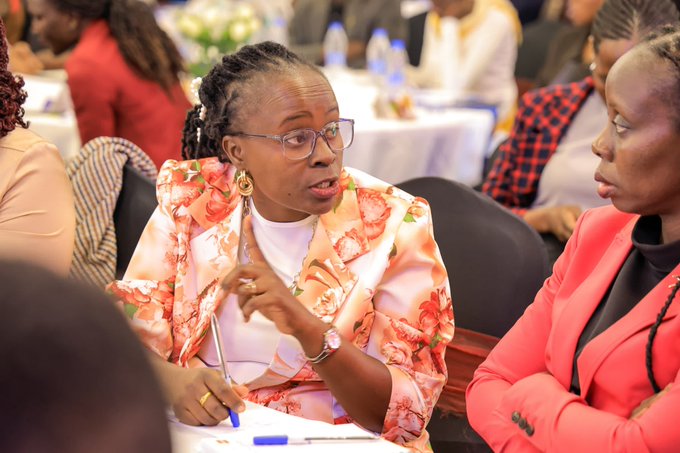
“We must move past the ‘it starts and ends with me’ mindset to create more billionaires. The guarantee to saving your money is by investing it and having a long-term plan. We need to do away with the mentality of “it starts and ends with me” and maybe we can have more billionaires,” she noted.
Sanlam Investment Portfolio Relationship Manager, Eileen Ninsiima, advised women entrepreneurs to look for other ways to learn about financial involvement.

“Utilize your YouTube channels and get mentors. You will see yourself thrive in your enterprise.”
Allen Kabindi, CEO of Smart24TV, challenged women to seek a boost saying that Smart24TV drives business growth.
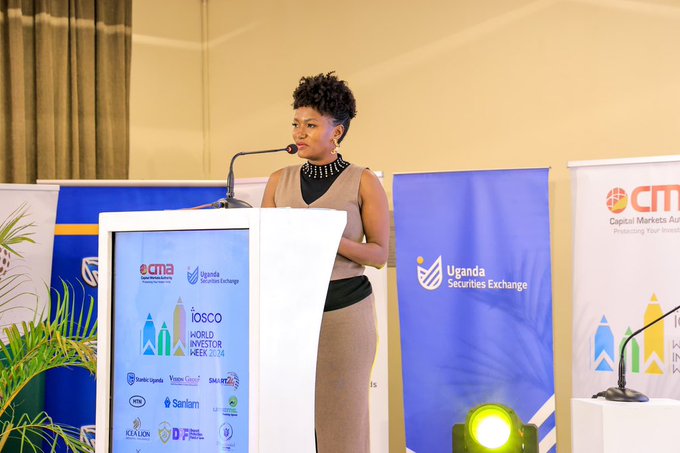
“I’m proud to see ladies pushing one another for success. I urge the women who want a boost, I am here to help you and showcase your business, and it is quite good to see that many of the women here are running their businesses.”
According to Susan Namaganda, a Capital Markets Consultant, women are the biggest bearers of the burden of “black tax” money that could otherwise be used for investments.
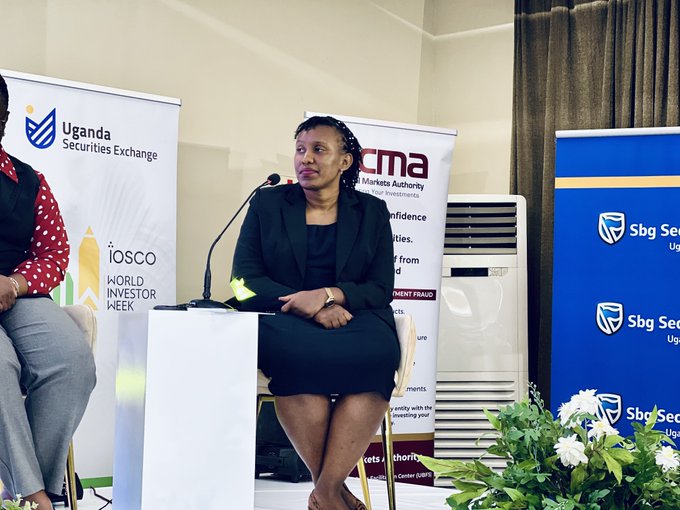
“They have to balance between supporting family and investing in their future.”
Brenda Amony, Portfolio Relationship Manager, Deal Flow Facility, advised women who want to raise capital, to formalize their businesses, offer solutions that fit market demand, and ensure their businesses can survive without them.
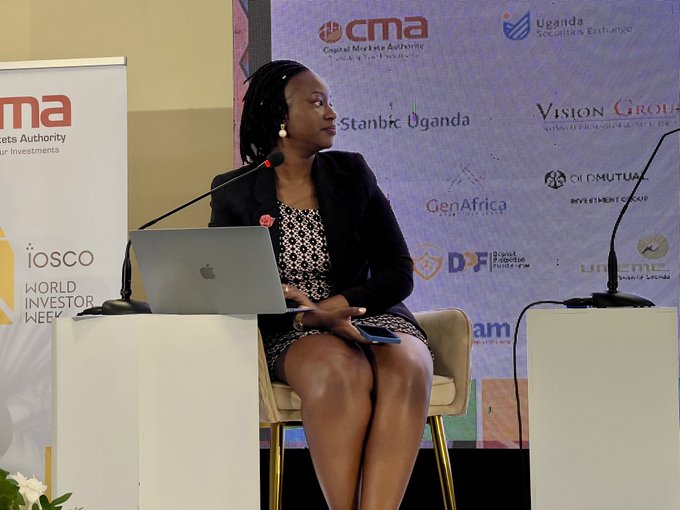
Dr. Christine Lubega, a healthcare practitioner, warned women entrepreneurs against becoming enemies of progress.
“Look out for something that has worked for you and help out the other women so that we can learn and also impact communities. The moment you invest in a woman, you would have invested in the community, as shareholders our task has been underlined that we must work together to help women as investors, and entrepreneurs.”

“Let us ensure that driving of a long term sustainable business engagement and empowering women through investment and also create awareness about the tech-based financial solution,” said Irene Mugisha, CEO at PCF Uganda, a State House initiative to harness and popularize private sector involvement in local and international initiatives.

